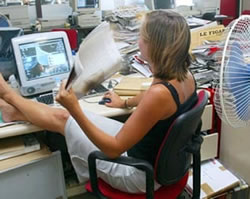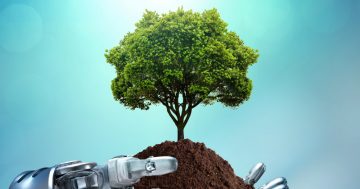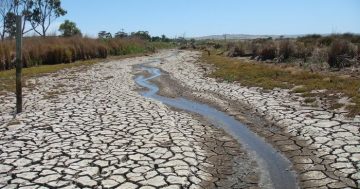Dan Schawbel* explores the impact climate change is going to have on the way we work — and what can be done to mitigate it.
 Although the effects of climate change on our planet are understood, we hear a lot less about how warmer temperatures might impact workers and organisations.
Although the effects of climate change on our planet are understood, we hear a lot less about how warmer temperatures might impact workers and organisations.
However, there’s no question that by altering our environment, climate change will also affect our day-to-day lives — including our jobs.
For employees, shifting weather patterns pose a very real risk to productivity and human health, even for people who work indoors.
Europe’s record-breaking heatwave didn’t just affect front-line workers; it also made it unsafe for people to commute to work.
More recently, Hurricane Ian left tens of thousands of people jobless, and many workers may not ever return to their old occupations.
In many industries, these shifts could result in notable modifications to how, where, and even when people work.
Climate change will also affect the skills that are required of employees, which jobs are more (or less) in demand, and even the existence of certain roles.
Employers, on the other hand, will have to consider how shifting weather patterns might impact their operations, expenses, and labour force estimations.
They’ll also need to ramp up their commitments around sustainability initiatives, not only for the greater good, but also to attract and retain today’s eco-savvy employees.
Workers whose jobs require them to be outdoors will be most likely to feel the impact of climate change.
This includes employees in industries like transportation, tourism, emergency services and mining, amongst many others.
These workers will primarily be affected by rising temperatures, air pollution, and extreme weather events like floods and wildfires.
Heat-related illness and fatigue can make it immensely dangerous for employees to carry out their tasks, while poor air quality can lead to respiratory and cardiovascular conditions.
Rising temperatures can also contribute to a higher incidence of diseases like malaria and dengue.
According to the International Labour Organisation, thermal stress due to climate change will result in an economic loss of $2.4 billion and productivity losses equivalent to 80 million full-time jobs worldwide by 2030.
Although workers in climate-controlled environments won’t be as influenced by climate change, they’ll certainly be asked to play a part in combatting it.
In a recent global survey, 84 per cent of respondents expressed worry about climate change and 45 per cent said these feelings negatively affected their daily life and functioning.
One action we’re likely to see is an increase in remote working as well as greater use of co-working spaces, which can shorten or eliminate commute times.
We also may see companies requiring people to work from home during extreme weather conditions.
We’re likely to see ‘heat days,’ where businesses and schools don’t operate, or people telework, because it’s too hot for people to commute safely.
Some organisations may need to reduce working hours to keep people safe during the hottest times of the day.
Many businesses will likely face a labour shortage, or they’ll have to pay higher wages to compensate employees for working in high-risk conditions.
There are good reasons to align your business with climate change mitigation, including the potential to attract a broader consumer and employee base.
Research from Deloitte has found that 65 per cent of consumers expect chief executives to do more to make progress on societal issues.
These include reducing carbon emissions, tackling air pollution, and making supply chains more sustainable.
It’s critical that businesses invest in upskilling their workers so they’re better equipped to deal with the impact of climate change in their roles.
Executive Director of the Association of Climate Change Officers, Daniel Kreeger says few employees are trained in incorporating climate patterns in their planning for the future.
“We don’t have the right people with the right skills in the right places,” he says.
Employees too should take note of evolving expectations for their roles as well as new job opportunities.
The ‘green job market’ is quickly growing, and with that comes an increased demand for green skills like pollution mitigation, waste prevention, and sustainable procurement.
While I know this article touches only lightly on the topic, I hope it’s inspired you to learn more, take action, or maybe even rethink your career trajectory in some way.
*Dan Schawbel is a bestselling author and Managing Partner of Workplace Intelligence, a research and advisory firm helping HR adapt to trends, drive performance and prepare for the future.
This article is part of his Workplace Intelligence Weekly series.











